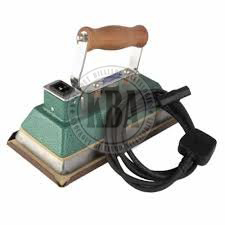A cue can be either hand- or machine-spliced. The choice of materials used in the construction of the cue
butt and the artistry of the design can lead to cues of great beauty and high price. Good quality pool
cues are customarily made from straight-grained hard rock maple wood, especially the shaft. Snooker
cues,by contrast, are almost always made of ash wood, although one might come across one with a
maple shaft .Maple is stiffer than ash, and cheaper. Cues are not always for play, some are purely
collectiable and can reach prices of tens of thousands of dollars for the materials they are made of and
their exquisite craftsmanship....
A good cue needn't be expensive. These "collector" cues have fine workmanship and use top quality
materials. They are designed with ornate inlays in varying types of wood, precious metals and stones, all
in a multitude of styles and sometimes displaying works of art. The inlays are stained, translucent,
transparent or painted. These cues are also valued because of how well they perform. Competitors of
custom cue makers and mass-production manufacturers usually try to make cues look like they are made
of expensive materials by using overlays and decals. Although these lower the cost of the cues, they do
not degrade the cues' effectiveness in game play. Another mark of quality is the precision with which
inlays are set. High quality inlays fit perfectly with no gaps; they are symmetrical on all sides, as well as
cut cleanly so that all edges and points are sharp, not rounded. The use of machines has aided much in
the production of high quality inlays and other ornaments
butt and the artistry of the design can lead to cues of great beauty and high price. Good quality pool
cues are customarily made from straight-grained hard rock maple wood, especially the shaft. Snooker
cues,by contrast, are almost always made of ash wood, although one might come across one with a
maple shaft .Maple is stiffer than ash, and cheaper. Cues are not always for play, some are purely
collectiable and can reach prices of tens of thousands of dollars for the materials they are made of and
their exquisite craftsmanship....
A good cue needn't be expensive. These "collector" cues have fine workmanship and use top quality
materials. They are designed with ornate inlays in varying types of wood, precious metals and stones, all
in a multitude of styles and sometimes displaying works of art. The inlays are stained, translucent,
transparent or painted. These cues are also valued because of how well they perform. Competitors of
custom cue makers and mass-production manufacturers usually try to make cues look like they are made
of expensive materials by using overlays and decals. Although these lower the cost of the cues, they do
not degrade the cues' effectiveness in game play. Another mark of quality is the precision with which
inlays are set. High quality inlays fit perfectly with no gaps; they are symmetrical on all sides, as well as
cut cleanly so that all edges and points are sharp, not rounded. The use of machines has aided much in
the production of high quality inlays and other ornaments


































